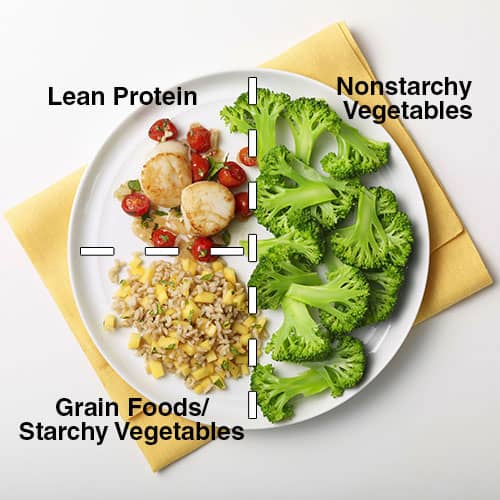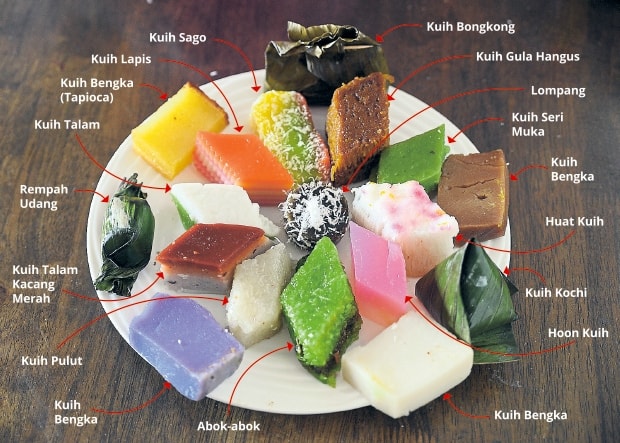Ramadan is the one month per year where Muslims fast from dawn until sunset every day by refraining from food, water, smoking, medications, and even gum. Pregnant and breastfeeding women, children, seniors, and those on important medications or requiring nutrition care (such as people with diabetes, renal failure, or patients on tube feeds) are exempt from fasting.
During this month, Muslims spend more time getting closer to God, refrain from bad habits, and focus on spiritual growth. It is important to note that fasting is not a “weight loss diet” but is a great opportunity to focus on improving one’s character, changing behaviours and developing healthy habits.
The following are 8 important things to remember while observing the fast
1. SAFETY FIRST
Pregnant women, nursing mothers, and those who are ill are exempt from fasting. Talk to your doctor before Ramadan begins as it is important for you to discuss your Ramadan plans 1-2 months before with your doctor and seek advice from a Dietitian to tailor specific dietary requirements to your needs. In some situations the fast may need to be broken and can be made up for at a later date.
2. HYDRATION
Staying hydrated is key when you’re fasting.
Men, on average, need to drink about 3L (13 cups) of water per day, while women need to consume about 2.2L (9 cups) of water per day.
Break your fast with a glass of water, and drinks about 2-3 large glasses of water at your evening and pre-dawn meals. Also, you may want to stay away from caffeinated high sugar drinks (for example: pop, energy drinks, coffee, tea).
3. BREAKING THE FAST
Breaking the fast (iftar) is one of the most important meals and is comparable to breakfast. Fill a third of your stomach with food, a third with water, and leave a third empty. This ensures hydration and prevent overeating at the main meal.
A common recommendation is to eat 5-6 dates soaked in 1 cup of milk. Dates are a potassium dense food, which aids in hydration and restores electrolyte balance. Milk is high in calcium, and water as is balanced in macronutrients. This combination is perfect for restoring energy.
4. EAT MINDFULLY AT MAIN MEAL
After breaking the fast with a snack, such as the dates and milk, it is recommended that Muslims to perform sunset prayer (which usually takes 5-10 minutes) before they sit down to eat their main meal. This allows the body to absorb some of the nutrients and suppresses extreme hunger.
Eat slowly and chew very well to help pace yourself. It is quite common to eat a large portion of foods after a 12 hours fast, but remember it takes a 20 minutes for the stomach to tell your brain it is full. Eat till you are comfortably full.
Make conscious food decisions – remember the “Balanced plate”: ½ plate vegetables and salad, ¼ grains and starch (e.g., rice, pasta, potato), ¼ protein (e.g., chicken, fish, beef, lamb, lentils and eggs)

- Protein with high absorption factors, such as egg whites, fish, skinless chicken, and whey protein.
- Complex carbohydrates such as lentils, beans, quinoa, brown rice, and whole wheat pasta are released slowly, making you feel satiated for a longer period of time.
- Avoid simple carbohydrates, such as white bread, fruit juice, chocolate bars, and other packaged goods, as they will digest quickly and make you hungry sooner.
5. HEALTHY SNACKS
It is recommended to eat at least two small snacks between breaking the fast and going to sleep. Since the timing for eating is so small, it is best to focus on faster digesting foods. Some great snack choices:
- Low fat greek yogurt with 1 piece of fruit
- A whole grain sandwich (egg salad, tuna, cheese, peanut butter)
- A cup high fibre cereal with a cup of low-fat milk
- A piece of fruit with a handful of nuts
- Popcorn (unsalted and unbuttered)
- Whole grain crackers with low-fat cheese
- Hummus dip with vegetable sticks
The last snack before going to bed should be higher in complex carbohydrates and good fats such as avocado, nuts, and seeds.
6. MAXIMIZING ENERGY FOR THE DAY
Pre-dawn meal (Suhoor) is a very important meal for fasting Muslims. This is when Muslims wake up 1-2 hours before their fast begins to eat one last meal (between 3-4 am). If this meal is properly balanced, it can help those fasting to remain high energy for the morning-noon portion of the day.
It is better to prepare this meal before going to bed so you can sleep for as long as possible. A meal high in complex carbohydrates, fibre, slower digesting protein (such as the casein in Greek yogurt), and good fats is ideal to slow gastric emptying.
7. LIMIT SWEETS
Due to the festive nature of Ramadan where lots of family and friends often gather at sunset to eat together, high sugar and fatty sweets are usually a regular after dinner.
Try to initially fulfill your sugar craving with one of the healthy snacks listed above and then have a small amount of the traditional sweets or other healthy alternatives.
Traditional Sweets and deep fried foods (fried samosas, fried chicken, fried spring rolls, fried banana (pisang goreng) and fried potato chips) are high in sugar and fat which can make you feel sluggish and fatigued. Other high-fat cooked foods including oily curries and greasy pastries (Kuih bahulu, Apam balik)

Healthy alternatives
- Baked samosas, baked spring rolls, oven baked potato chips
- “Dry frying” – using a non-stick pan or non-stick food sprays
- Grilled or baked meat, chicken, fish as a healthier alternative – while retaining the flavour and taste of the food
8. ADJUST EXERCISE ROUTINE
If you are planning to continue your exercise routine, it is recommended to shift your exercise to the end of the day when food is eaten. During Ramadan, the frequency, duration and intensity of exercise likely will need to decrease.
1 DAY MEAL PLAN
- 9:00 pm (breaking fast): 5-6 dates soaked in 1-cup milk or small soup
- 9:05 pm: Complete sunset prayer
- 9:10 pm (main meal): 1-cup brown rice + skinless chicken breast + sautéed veggies with olive oil, and a fruit for dessert + 1-cup water or soup
- *2-cups water
- 10:30 pm (snack #1): Fruit with low-fat yogurt + 1-cup water
- *2-cups water
- 11:30 pm (or 15 min before bedtime, snack #2): Half-cup rolled oats + walnuts + blueberries + 1-cup milk or kefir + 1-cup water
- 4:00am (Suho0r: 20 min before holding fast): sprouted grain bread + 2 eggs + ½-1 avocado + Greek yogurt for dessert + 1-2 cups water
BOTTOM LINE
After 30 days of fasting, Muslims from around the world celebrate Eid. The day starts off with morning prayers and the celebration continues with friends, family and lots of food.
Ramadan provides a chance for Muslims to “cleanse” their lifestyle from bad eating habits and junk food. Since the window for eating is tiny, it is important for those that are fasting to cut out nutrient poor foods and focus on eating nutritious ones.
Overall, balanced food and fluid intake is very important during these fasting periods. In order to prevent weight loss or muscle breakdown, your meals must contain decent levels of energy-rich foods, which should include carbohydrates and some portion of fat.


Leave A Comment